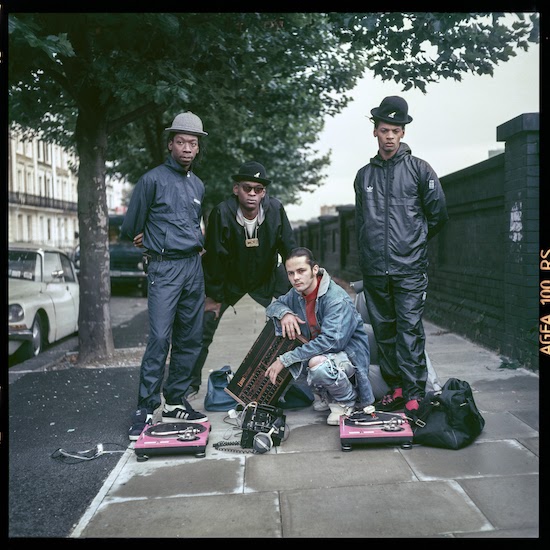One version of the history of trip hop, told surprisingly often, is of laid-back Bristolians stumbling upon a downbeat form of dance music almost by accident. It’s a tale that has little to do with striving to create anything new, or of cultural collisions and backstories, but rests on local musicians being, to quote Massive Attack’s Grant ‘Daddy G’ Marshall on the band’s work ethic, “lazy Bristol twats” who just happened upon what came to be called the Bristol Sound.
To understand why this idea is so clearly nonsense, remember how radical Massive’s Blue Lines (1991) sounded in the context of the year grunge broke – and indeed still sounds. Or listen again to the sense of melancholy and creeping fear that underpins Tricky’s claustrophobic Maxinquaye (1995). As for Portishead, to complete trip hop’s holy triumvirate, Dummy (1994) is an album of extremes, ice cool and precise yet also bluesy, anguished.
How to explain these albums? First up, banish all thoughts of Bristol as the gentrified, weekend-break destination of today, which is anyway a misleading picture. The centre of Bristol in the 1980s during high Thatcherism was a place pox-marked by abandoned and decaying spaces, the city as broken machine. It was Bristol where a decade of unrest in the nation’s urban centres began, when an April 1980 police raid against the Black and White Café in St Pauls, an area with a large British Afro-Caribbean population, was a catalyst for rioting.
Bristol was also a city with a vibrant and constantly mutating underground with strong roots in punk. To quote one of the late Mark Stewart’s favourite aphorisms, “There is the arrogance of power and what we got from punk was the power of arrogance.” It was a multicultural city too, with its own distinct sound system culture linked to the local reggae scene and the annual St Pauls Carnival. To this heady mix, add radical politics and graffiti artists such as Inkie, Massive’s Robert ‘3D’ Del Naja and, following on, Banksy.
Directly or indirectly, it’s striking how many of Bristol’s deepest cultural currents seem to flow through Stewart’s The Pop Group. According to Stewart, when the band put on early shows at the Barton Hill Youth Centre, those in attendance included Marshall, Del Naja and Milo Johnson, aka DJ Milo, all of whom would go on to be integral to The Wild Bunch sound system. Later, it would be Stewart who often brought back early hip hop records to Bristol from the USA. Later still, he took The Wild Bunch to London, where he introduced them to Newtrament, a Ladbroke Grove resident and electro pioneer who, rumour had it, got the newest hip hop records direct from his American father, as related in the Stray (Tangent Books) by Laurie Owens and Milo Johnson.
One of the spiritual homes of The Wild Bunch was the Dug Out on Park Row, a sticky and sweaty space where the collective honed their skills. In 1985, underground went overground when Bristol’s Arnolfini held the first British gallery exhibition of street art. Del Naja’s work was on the walls and, when The Wild Bunch performed at the gallery, a teenage Geoff Barrow, who would be mentored by Blue Lines producer Jonny Dollar, was among those in attendance.
In short, while there may have been spliff breaks along the way, trip hop didn’t just happen, it’s rooted in Bristol’s radicalism, its DIY ethic and, as the six tracks below reveal in their different ways, the pervasive influence of the city’s 1980s music scene.
Talisman – ‘Dole Age’
(1981, Recreational Records)
Like London and the West Midlands, Bristol was a centre for homegrown roots reggae in the late 1970s and early 1980s. Locally, the two biggest bands were Black Roots and Talisman, whose indie single ‘Dole Age’ says much about the world into which it was released. This was a time when Thatcher’s monetarist government prioritised controlling inflation over employment rates and the jobless total headed towards three million, a rate of more than 10 per cent. Although John Peel played the single and gave the band a session, Talisman never achieved sustained success or landed a major record deal. More generally, reggae an…



